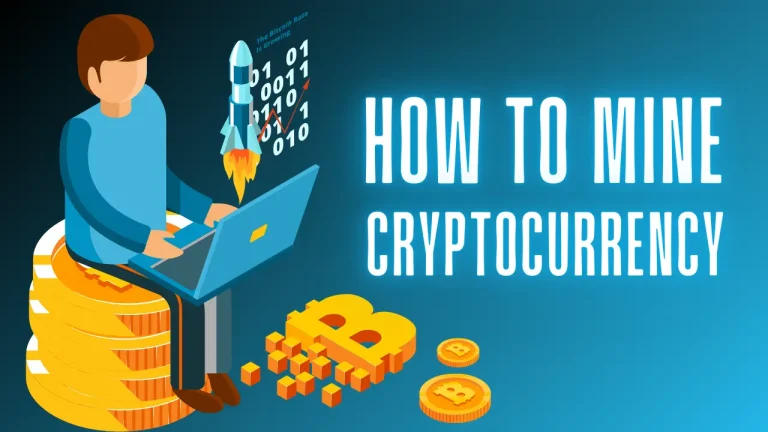In recent years, cryptocurrencies have become one of the most talked-about topics in the world of finance. But what exactly are cryptocurrencies? If you’re new to the world of digital money, this guide will explain what cryptocurrencies are, how they work, and why they matter in simple terms.
What is a Cryptocurrency?
A cryptocurrency is a type of digital currency or virtual money that exists entirely online. Unlike traditional money (like dollars or euros), cryptocurrencies do not exist in physical form, and they are not controlled by any government or bank. Instead, they are decentralized, meaning they operate on a network of computers spread around the world.
Cryptocurrencies use a technology called blockchain to keep track of all transactions and ensure that they are secure, transparent, and trustworthy.
Key Features of Cryptocurrencies
Here are some of the main features that make cryptocurrencies unique:
- Digital and Decentralized: Cryptocurrencies are digital, meaning they only exist on computers and the internet. They are not controlled by any government or financial institution, making them decentralized.
- Security: Cryptocurrencies use advanced cryptography (secret codes) to secure transactions. This makes them much harder to hack or counterfeit compared to traditional money.
- Global Transactions: You can send or receive cryptocurrencies from anywhere in the world, and the transactions usually happen quickly and at a low cost.
- Limited Supply: Most cryptocurrencies have a limited supply. For example, Bitcoin is limited to 21 million coins, which makes it scarce and more valuable over time.
- Anonymity: While cryptocurrency transactions are visible on the blockchain, the identities of the people involved are hidden behind a digital address, offering a degree of privacy.
How Do Cryptocurrencies Work?
Cryptocurrencies operate on a system called blockchain. Here’s how it works:
- Blockchain Technology: A blockchain is a digital ledger or record that keeps track of all transactions. Each “block” in the chain contains a list of transactions. Once a block is filled, it is added to the chain in a secure and permanent way. This system ensures that transactions cannot be changed or deleted.
- Mining and Validation: Cryptocurrencies like Bitcoin are created through a process called mining, where powerful computers solve complex mathematical problems to verify transactions. These computers (called miners) earn cryptocurrency as a reward for their work.
- Wallets: To store and manage your cryptocurrency, you need a digital wallet. A wallet is like an online account where you can send and receive cryptocurrencies. Wallets come in different forms, including mobile apps, websites, or even physical devices (called hardware wallets) for extra security.
Popular Cryptocurrencies
There are thousands of cryptocurrencies available today, but some of the most popular ones include:
- Bitcoin (BTC): Bitcoin is the first and most famous cryptocurrency, created in 2009 by an anonymous person known as Satoshi Nakamoto. It is often called “digital gold” because it is used as a store of value.
- Ethereum (ETH): Ethereum is more than just a cryptocurrency; it’s also a platform that allows developers to build decentralized applications (dApps) using smart contracts. Smart contracts are self-executing agreements that run automatically when certain conditions are met.
- Ripple (XRP): Ripple focuses on making cross-border payments faster and cheaper. It is often used by banks and financial institutions for international transactions.
- Litecoin (LTC): Created in 2011, Litecoin is similar to Bitcoin but with faster transaction speeds and lower fees. It’s often considered the silver to Bitcoin’s gold.
- Cardano (ADA): Cardano is a platform that focuses on security and scalability. It is similar to Ethereum but uses a different approach to building and running applications.
How to Buy and Use Cryptocurrencies
If you’re interested in buying and using cryptocurrencies, here’s how you can get started:
- Choose a Crypto Exchange: A crypto exchange is a platform where you can buy and sell cryptocurrencies. Some popular exchanges include Coinbase, Binance, and Kraken. You’ll need to create an account and verify your identity.
- Deposit Money: To buy cryptocurrencies, you’ll need to deposit money into your exchange account. You can usually deposit using traditional methods like a bank transfer or a credit card.
- Make Your Purchase: Once your account is funded, you can choose which cryptocurrency you want to buy. Simply enter the amount and place your order.
- Store Your Cryptocurrency: After you buy your crypto, it’s important to store it safely in a digital wallet. Some people choose to store their crypto on exchanges, but it’s generally safer to use a personal wallet.
- Use Cryptocurrency: You can use your cryptocurrency to buy goods and services from merchants that accept it, or you can hold onto it as an investment, hoping its value will increase over time.
Why Do Cryptocurrencies Matter?
Cryptocurrencies offer several advantages that make them important in today’s world:
- Financial Inclusion: Cryptocurrencies can provide access to financial services for people who don’t have access to traditional banking, especially in developing countries.
- Lower Transaction Costs: Since cryptocurrencies don’t rely on banks or intermediaries, transaction fees can be much lower compared to traditional banking systems.
- Decentralization: Cryptocurrencies operate on a decentralized network, meaning no one person or organization has control over the system. This can make them more transparent and resistant to manipulation.
- Innovation: Cryptocurrencies have sparked innovation in various fields, including finance (DeFi), gaming (NFTs), and even healthcare. They offer new ways to solve old problems, such as cross-border payments and secure data sharing.
Conclusion
Cryptocurrencies are changing the way we think about money. They are digital, secure, and decentralized, and they have the potential to make global transactions faster and cheaper. Whether you’re looking to use them for transactions, invest in them, or simply learn more, understanding cryptocurrencies is the first step toward joining this exciting new financial world.
Remember, cryptocurrencies are still relatively new, and their prices can be volatile. It’s important to do your own research and only invest what you can afford to lose. With the right knowledge, you can navigate the world of cryptocurrencies confidently!







